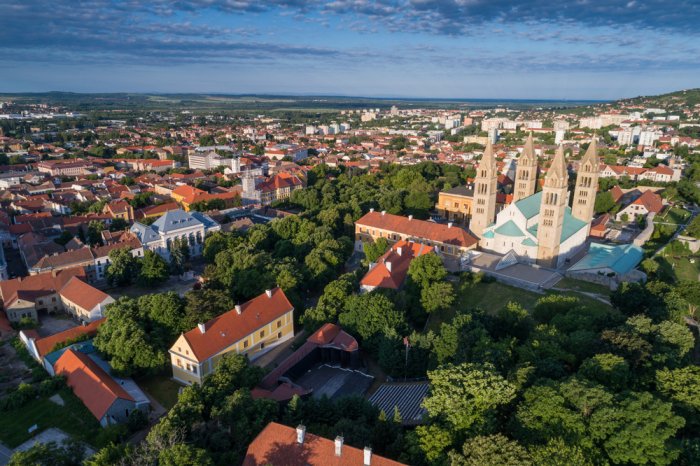Gov’t to reopen retrofitting subsidy scheme

From the Budapest Business Journal print edition: The government has announced the re-launch of a suspended retrofitting program that is expected to optimize energy use for 140 communities that have filed for support. There are hopes that besides the environmental aspects, the grants will also serve as a boost to output in the construction sector.
A number of applications that were submitted to a European Union financing program may now finally become reality years later after the government announced it has successfully gathered sufficient state funding to allow the program to progress.
“We raised the necessary funding, step-by-step or should I say forint-by-forint,” Development Minister Zsuzsa Németh told reporters in Győr.
The official said that the campaign dubbed ‘Panel II’ will be sufficient to perform the necessary retrofitting of some 8,000 homes, many of which have had applications suck in the system since the suspension of the program in 2009 when state funding ran out.
At the time, there was heightened interest for the program that allowed major and often long overdue overhauls of residential buildings, including the installation of better sealed doors and windows and more advanced types of insulation.
Such measures are known to drastically reduce households’ energy consumption and thus have a significant overall impact on the environment, given that buildings produce the largest volumes of harmful carbon dioxide emissions.
Németh said the ministry calculates that the resulting developments will reduce the apartments’ annual carbon dioxide emissions by 8,700 tons and their energy consumption by 41 million kilowatt hours.
Green building jobs
The continuation of the program is expected to generate HUF 9 billion in new orders for the construction industry, one of the economic segments most painfully affected by the crisis, and showing some signs of bouncing back only now.
Builders had a tough year in 2012, with the Central Statistics Office (KSH) publishing negative growth for the industry in 10 out of the 12 months, with February dipping 15.1% on the year. In contrast, 2013 has been all about growth thus far, with every month producing expansion. The latest figure (for September) shows a 9.3% annual growth, while the biggest leap of 14.6% came in August.
The announcement reflects the government’s declared intent to support the construction industry, not only through state projects or subsidizing household initiatives, but also through creating new financing channels that could fuel private investment.
The construction industry still greatly needs the inflow of new funding; despite the growth this year, the percentages compare to a deplorable 2012 base and the industry is nowhere near the boom seen before the Lehman Brothers collapse, when financing was still widely available and investments were plentiful both for households and businesses.
The Association for Promoting Home Construction (TLE) is urging new subsidy schemes and argues that the government should use funding from the European Investment Bank or the National Bank of Hungary to open funding options with the specific purpose of covering the costs of energy optimization. Theses wouldn’t be subsidies, but made available with favorable Internet conditions for long maturities.
TLE also argues that Hungary should consider the sustainability of the overall stock of apartments. KSH says there were 10,560 new apartments built last year, meaning there are altogether 4.3 million of them in the country.
The president of TLE, Zsolt Maráczi, calculates that if there were around 10,000 new apartments built every year, the current overall stock would take 300-400 years to be fully replaced. It notes that there is no state concept that covers a multi-generational time span like that and especially not a strategy that would assure sustainability.
A large number of buildings throughout Hungary are currently outdated, dilapidated and barely meet the legal criteria for functioning as homes. In such cases, the construction of new, sustainable housing would actually be a more cost-effective solution then retrofitting, Maráczi warned.
SUPPORT THE BUDAPEST BUSINESS JOURNAL
Producing journalism that is worthy of the name is a costly business. For 27 years, the publishers, editors and reporters of the Budapest Business Journal have striven to bring you business news that works, information that you can trust, that is factual, accurate and presented without fear or favor.
Newspaper organizations across the globe have struggled to find a business model that allows them to continue to excel, without compromising their ability to perform. Most recently, some have experimented with the idea of involving their most important stakeholders, their readers.
We would like to offer that same opportunity to our readers. We would like to invite you to help us deliver the quality business journalism you require. Hit our Support the BBJ button and you can choose the how much and how often you send us your contributions.








